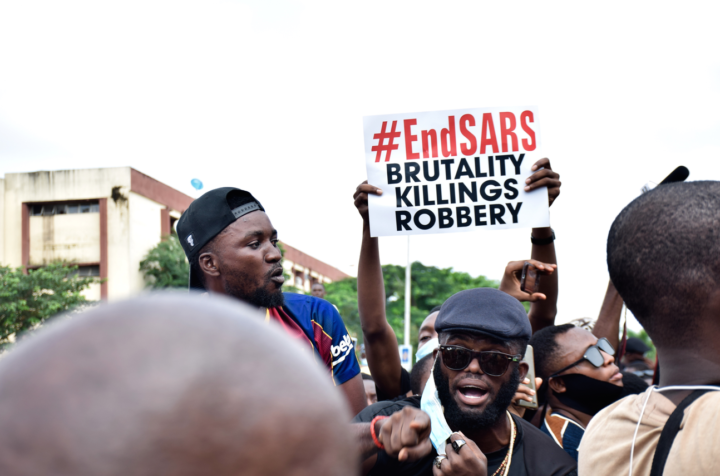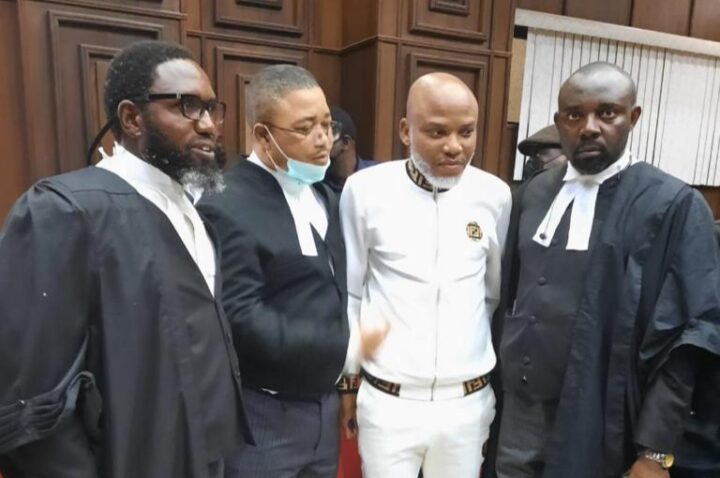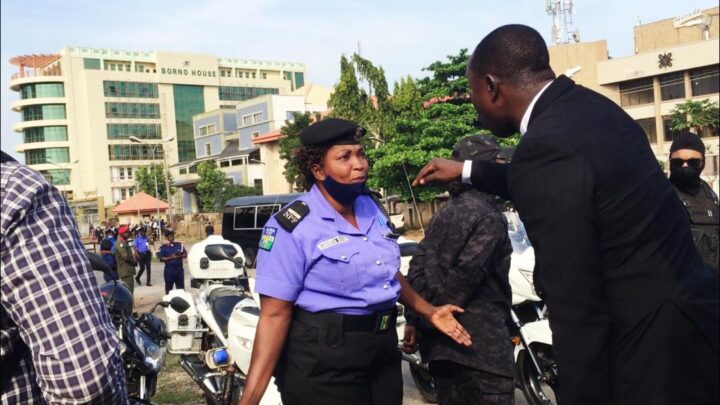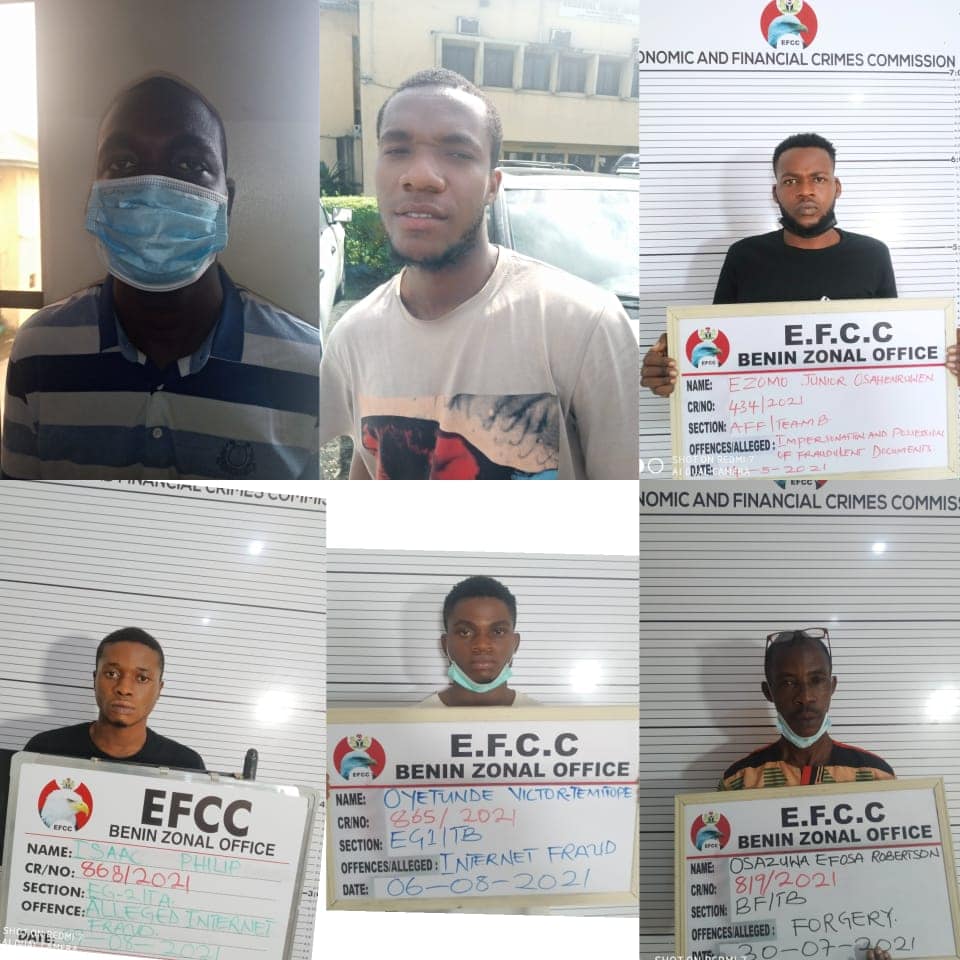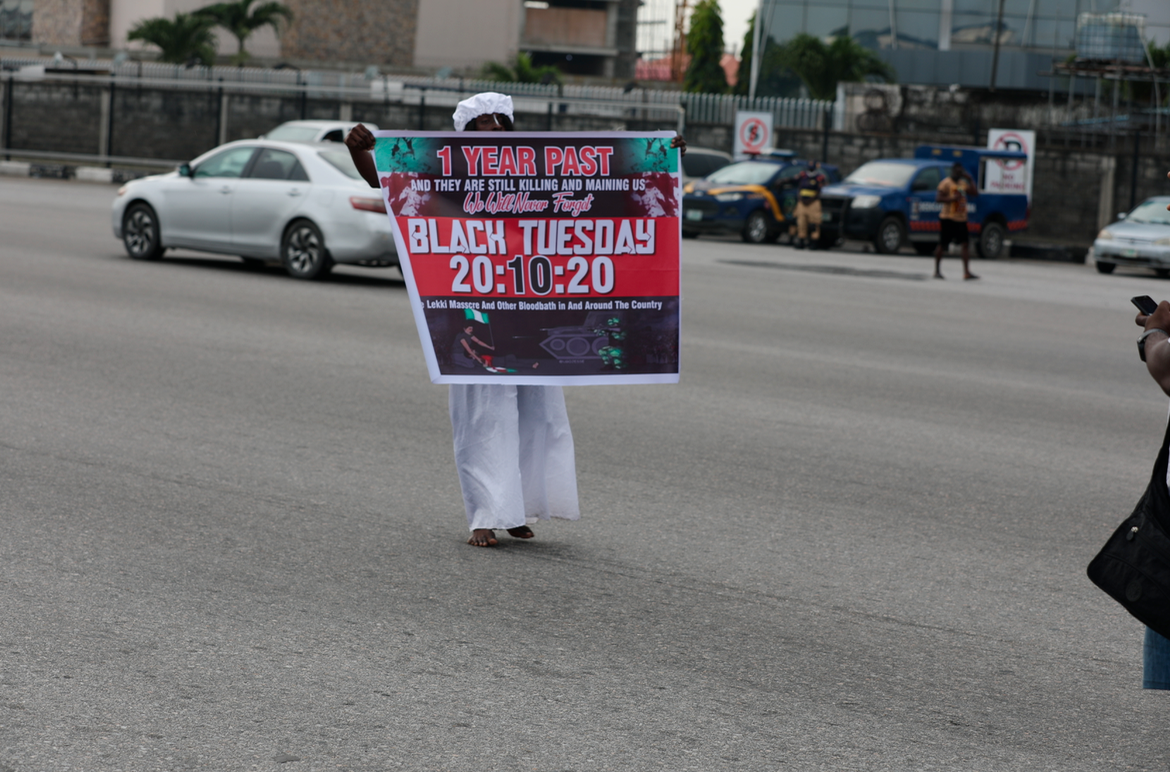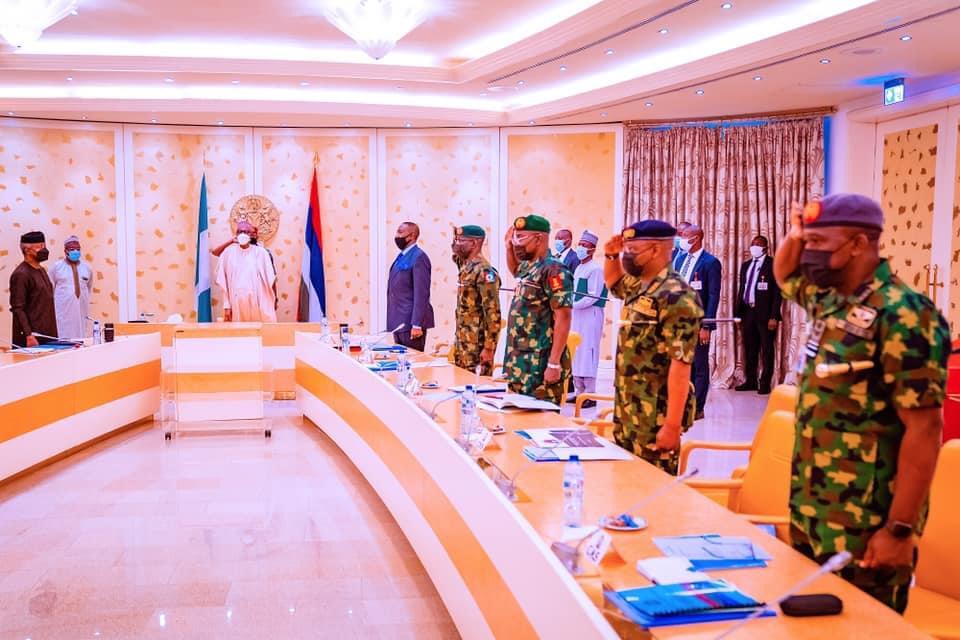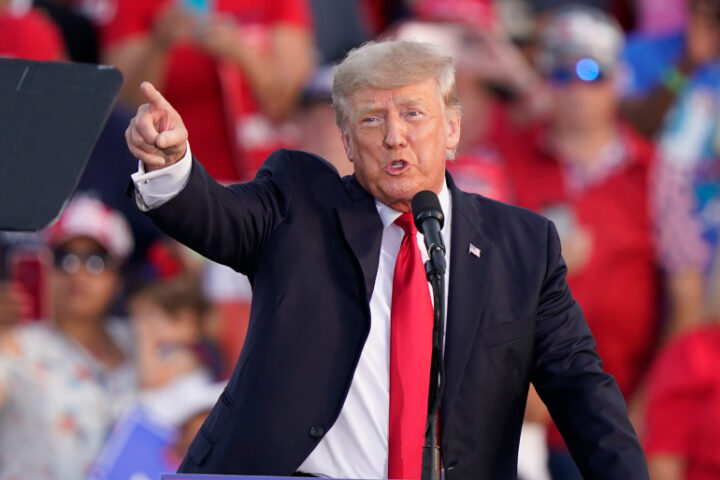Long before the movement came to be known as #EndSARS, multiple accounts had lamented the atrocities by the now-disbanded special anti-robbery squad (SARS). Beyond foiling heists, the police unit went rogue — profiling the youth as criminals by looks and perusing phones at gunpoint.
There were already existing demands for police reform and an upward review of the force’s salary structure to stem the tide of extortion that motivated the extrajudicial killing of civilians across the country. Yet, it was not until the final days leading up to October 2020 that the hydra-headed monster fully unraveled itself. The youth had had enough but the violent confrontations that played out in the said month within Lagos and Delta states were the last straw.
Arbitrary arrests here and unwarranted discharge of ammunition there, the youth would take to the streets in fury; seek justice in days of nationwide protest that climaxed with a full-fledged violent crackdown by the army. The movement sustained its tempo at a stretch in a way that riled up state governments and law enforcement agencies.
In Lagos, major roads were shut, causing gridlocks. Speakers blaring pop music were mounted on the express, with protesters holding up placards and chanting in frustration. Towards evening, they would march to the statehouse in Ikeja to iterate the five demands of the protest, pass the night on the streets of Alausa, and continue the next day.
Advertisement
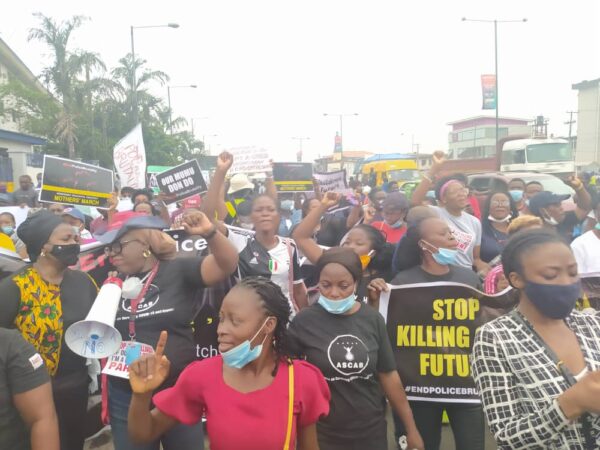
Millions were donated by sympathisers. The funds were put in cryptocurrency portfolios run by Feminist Coalition. With this, medical care, legal aid, food cost, security, and logistics were covered. The movement, decentralised, was impervious to political influence. It also cut across social class — playing host to both celebrities and poverty-struck people alike, all of whom aired their grievances and recalled the lurid details of their ordeal with SARS operatives.
Touts, who were later alleged to have been sponsored, struck at intervals to disrupt the protest, most significant of which was when machete-wielding men stormed Alausa, Lagos to chase away protesters who wouldn’t back down.
Advertisement
In Lekki, an upscale city hosting both firms and luxury homes alike, the movement was even fierier — lasting days in the scorching sun and bone-chilling nights. All that time, the tollgate was shut and couldn’t generate much revenue.
In frenzy, media outlets — broadcast and print — operating at both local and international levels were fully engaged while the news was inundated with #EndSARS reports. Given the global attention this routine commanded, it was a no-brainer that the government had to tread cautiously. The massive turnout for the protest was soon weaponised by parties who attacked and burned police stations. In Edo, a jailbreak was staged. Nearly 2000 inmates escaped.
This was bad news for national security, prompting allegations that #EndSARS had been hijacked by hoodlums. On the infamous October 20, Lagos would declare a curfew for 4 pm. It was on the night of that day that the army opened fire on unyielding and defenseless protesters who held up nothing but their placards and the Nigerian flag.
‘JAKPA’ AND THE MANTRA OF EXODUS
Advertisement
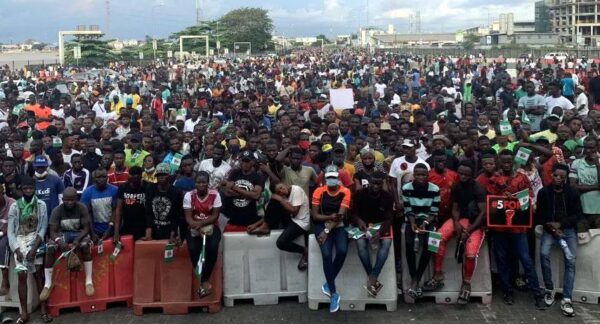
Lekki tollgate which used to be lit was suddenly shrouded in darkness after the Lekki Concession Company (LCC) turned off the lights. Hastily taken photos showed unknown persons purported to be LCC staff fiddling with CCTV cameras. Police patrolled Lagos which had turned chaotic. Touts burned tires and streets grew desolate. Gunshots crackled as it got darker. There was a foreboding that Nigeria was descending into what would be a pure nightmare.
Footage of citizens singing Nigeria’s anthem amid the army’s gunshots flooded social media. Photos of a protester clad in a blood-soaked Nigerian flag sent chills down spines. Gory sights of a stomach spilling out intestines and another shot-dead protester whose brain matter was oozing out of their cracked-open skull were cringe-worthy. It was as though the world stopped. DJ Switch, a disc jockey, live-streamed the shooting while aiding the wounded.
A scene captured laborious attempts by unskilled persons to extract a bullet from a bleeding protester. Burna Boy, an Afro-fusion musician who would later put out songs reminiscent of the tollgate violence, drove a vehicle to the burning scene and conveyed wounded citizens to the hospital after it was alleged that an ambulance set aside for the purpose was being turned back by the army operatives still far ahead. The forces at play dawned on the youth.
Advertisement
Social media would become awash with talks about visa acquisition and an exodus that has come to be called “jakpa” in local parlance. Many who could flee exited, included DJ Switch who alleged threats to her life for live-streaming the shooting. Clearly, the Nigerian government’s move to quash the days-long protest reinforced the resolve of young people to emigrate.
Photos of Nigerians in aircraft, at the departure lounge of airports, or in the diaspora abounded. Such captions as “goodbye Nigeria, the evil you’ve done is enough” and the more recent “welcome to a new dispensation” were rife. A protest against police brutality had been crushed under the weight of the same vice to which it had sought an end.
Advertisement
DASHED HOPES AND PATRIOTISM
Lagos first denied the army was involved. Later, it said it asked the army to intervene but never ordered the gunshots. Again, it was argued — with putrid deceit — that the army fired blanks. The disappointment was beyond words after facts surrounding the shootings remained shrouded in secrecy like they never happened. More infuriating was that the president took long to speak on the protest and conveniently left out the Lekki shooting when he eventually did.
Advertisement
Never in the history of Nigeria — not even during elections and civil gatherings — had the youth put aside their ethnic biases to come out en masse for a collective dream as they did during the EndSARS protest. The military crackdown dashed the hopes of many youths and crushed primordial feelings of patriotism. Today, Nigerians have never been more divided, with the government’s radical response further lending credence to violent methods by secessionists.
Despite overwhelming evidence and multiple investigations, the number of people who died at the tollgate remains disputed. Lai Mohammed, minister of information and culture, claimed there was no proof that any protester was killed. But the Amnesty International said no fewer than 12 protesters were killed in Lagos state during the protest. Contrarily, Switch had argued that at least 15 lost their lives while some of the bodies were taken away by the army.
Advertisement
The downside of deploying violence in civil movements has always been the possibility of radicalisation. #EndSARS was all-inclusive and the government’s initial affirmation that it would yield to the demands of protesters if they ended the demonstration nurtured hope. The protest included the youth in the southeast where the activities of the secessionist Indigenous People of Biafra (IPOB) had gained momentum. The crackdown reinforced the pedestrian belief that “violence is the only language the government understands—neither negotiations nor peaceful protests”.
ON CIVIL RIGHTS & POLITICAL APATHY
EndSARS pushed the boundary for the leaders and the led. It made the youth realise that violence would often be the last resort of the state. The protest highlighted the power of numbers and how fidgety the security agencies can get when citizens turn up en masse so much so that it becomes impossible to arrest or whisk them away in trucks. It made Nigerians realise their rights and normalise the practice of holding the government and its offices to account.
EndSARS ended SARS. The unit was disbanded on October 11, 2020, but the protest came with a five-point demand including the release of all arrested protesters; justice/compensation for deceased victims of brutality; setting up an independent body to oversee the investigation/prosecution of all reported police misconduct within a period of 10 days; psychological evaluation/retraining of all disbanded SARS operatives; as well as the increase in police salary.
A proposed salary structure is yet to be implemented. The brutality in the police force is far from being obliterated. Many protesters arrested during the movement are also still languishing in jail but judicial panels were set up by 29 states, with over 2700 petitions received. Monetary compensations between N7.5 and N10 million were awarded to victims of brutality. The panels recommended sanctions like a demotion, half salary, and sack for erring officers.
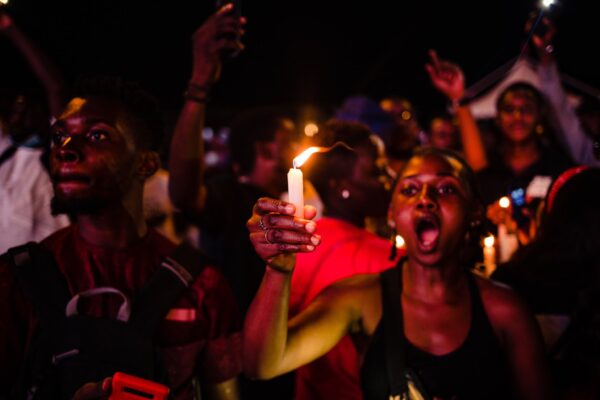
It is now on the federal government to implement the recommendations. On the Lekki shooting, the Lagos panel said its findings would be submitted to the state for onward transmission to the federal government but many fear the report might not be released. On psychological checkups for SARS officers, the Police Service Commission (PSC) said details are being planned. These wins seemed far-fetched on the outset and the protest isn’t exactly over on the remaining demands.
If anything, it’s positive news for civil rights and youth activism. Despite the distrust concerning the ability of the panel to bring justice to victims, the youth realised more than ever that being able to influence policies and drive government action lies not only in protests but in politics and participating in the very process of electing leaders into positions of authority. What this will mean for voter turnout in the 2023 presidential polls remains unclear.
Add a comment

